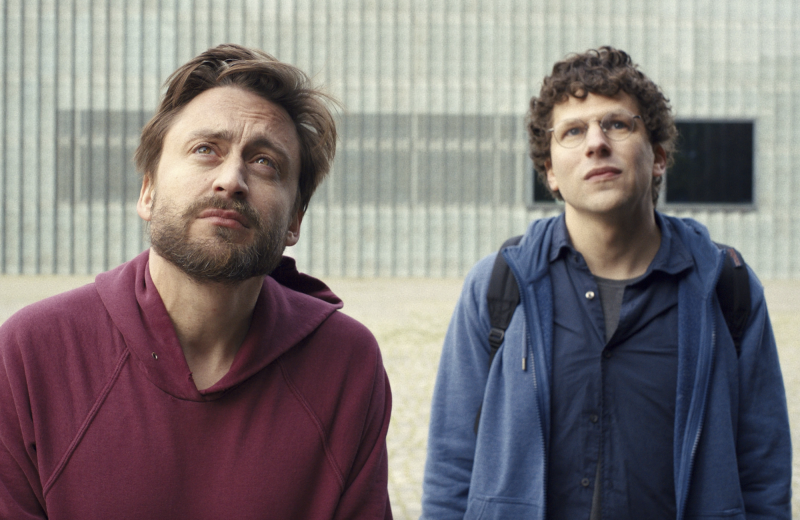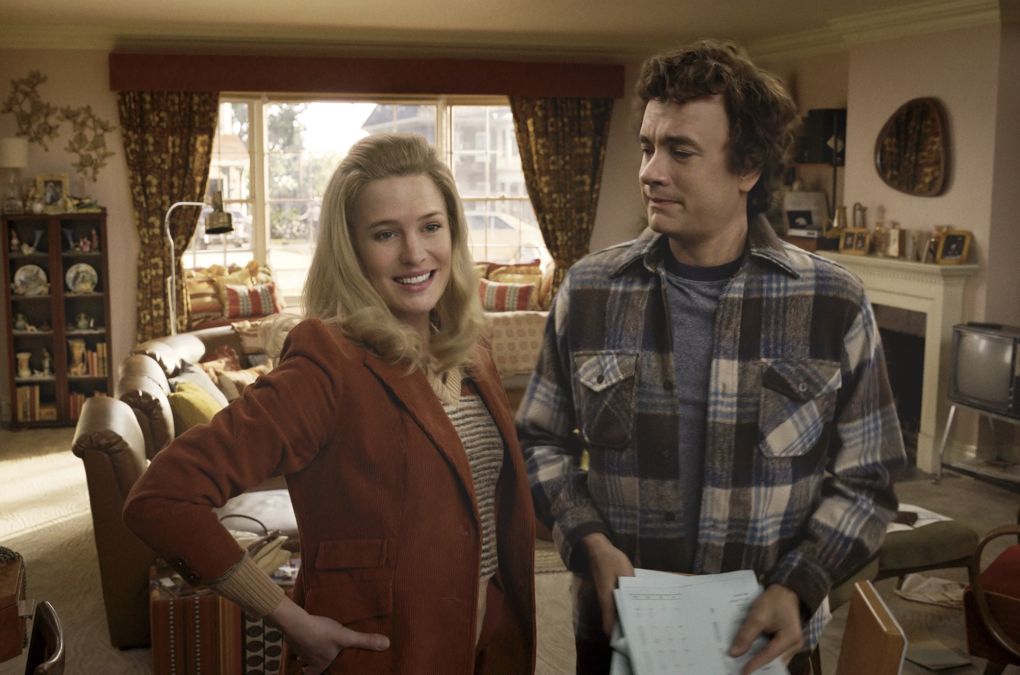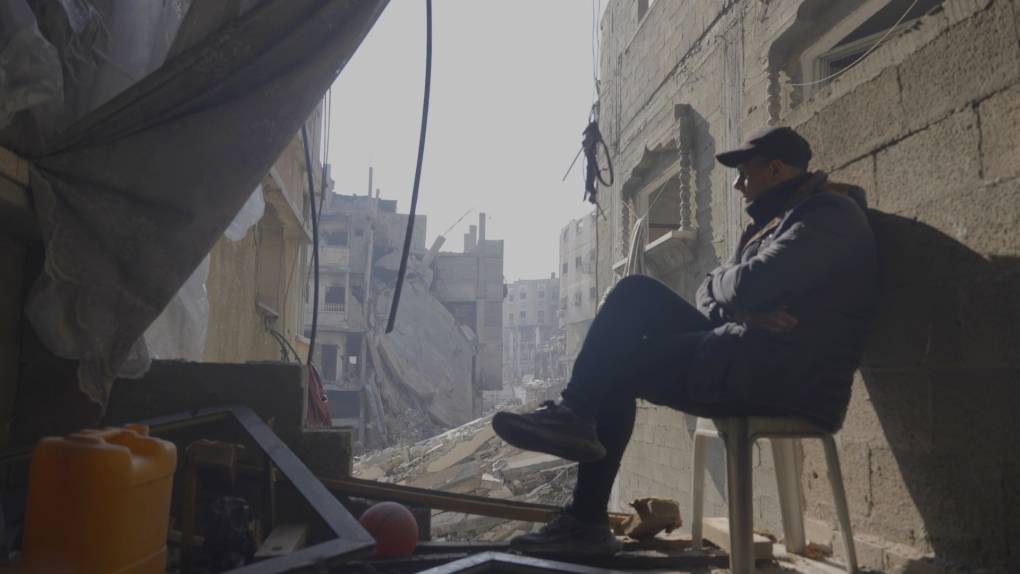In short order, Benji both charms and exasperates the group — and this turbulent brand of charisma is Culkin’s specialty.
At a war memorial statue, he runs up to strike a playful action pose, embarrassing David. But somehow, the whole group ends up joining Benji in the childlike stunt, and David is left taking photos.
Then when the tour boards a train for Lublin, Benji suddenly explodes in anger at the group — how can they be sitting in first-class comfort when 80 years ago, their ancestors were corralled into cattle cars? He disappears to a lower-class car.
And at a visit to a wartime tombstone, Benji admonishes the mild-mannered guide, furiously, for focusing on statistics and not letting the group feel the pure emotion of the moment. (He’s not wrong, as the guide will later acknowledge.)
Eisenberg has said that when conceiving of his film, he was struck by a Polish ad that promised “Holocaust tours (with lunch.)” All these moments feel quite real; such tours are indeed filled with awkward (and rather inevitable) juxtapositions of modern tourist comforts and historical horrors.
Speaking of horrors, by far the most difficult scenes come when the group visits Majdanek, the Nazi camp. There, they walk past unspeakable sights of gas chambers and ovens and piles of abandoned shoes. One might at first gasp that Eisenberg is leading us here at all; wisely, he keeps these moments silent. When Benji breaks down, it’s on the way home — an acknowledgment that such reactions often come later.
At the end, with the cousins hugging goodbye uneasily in the same airport where we began, having completed a journey both physical and personal, it’s hard not to think back to the title of the movie. Yes, Benji is “a real pain.” But there are layers of pain at play here.





